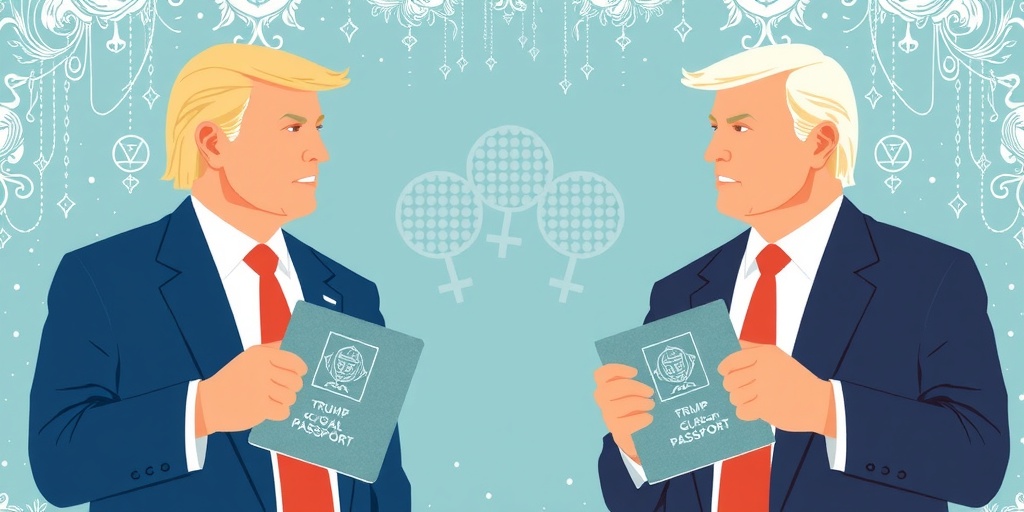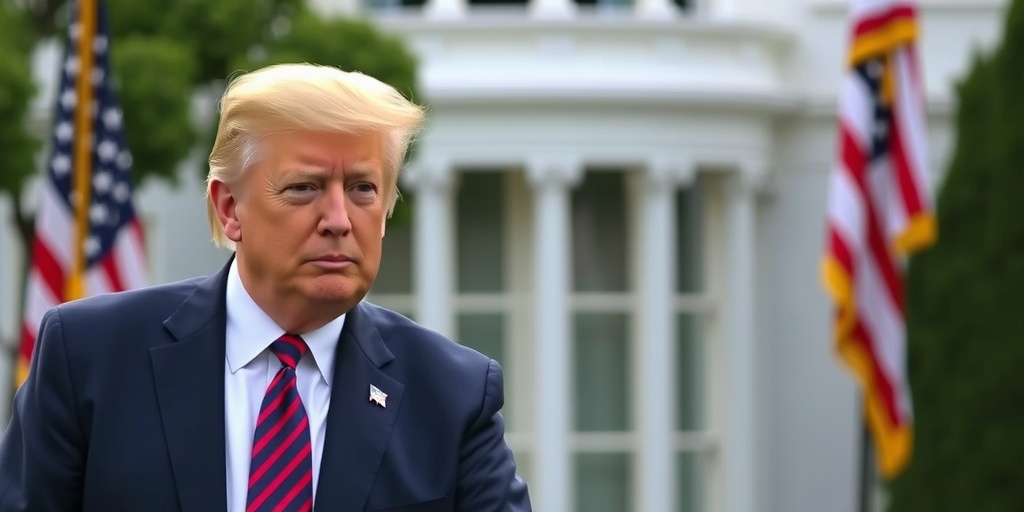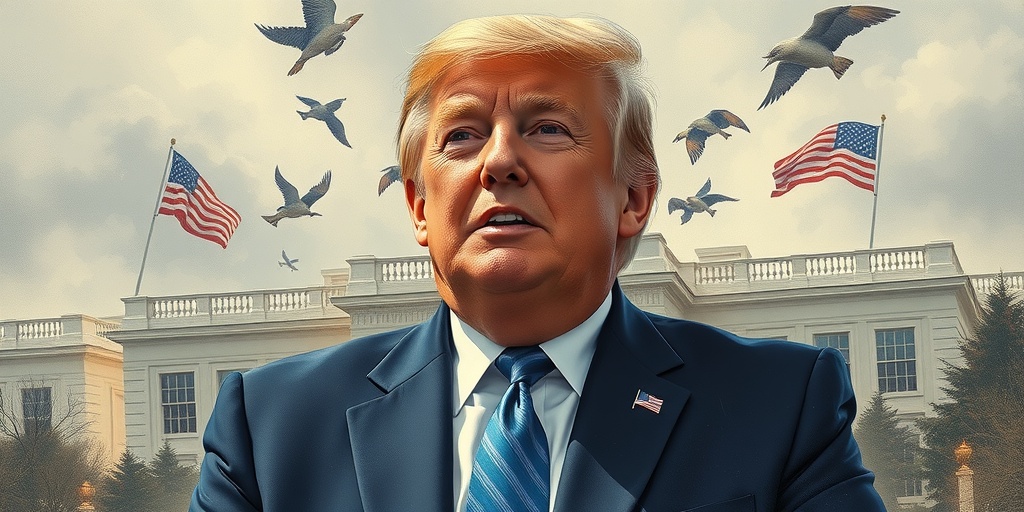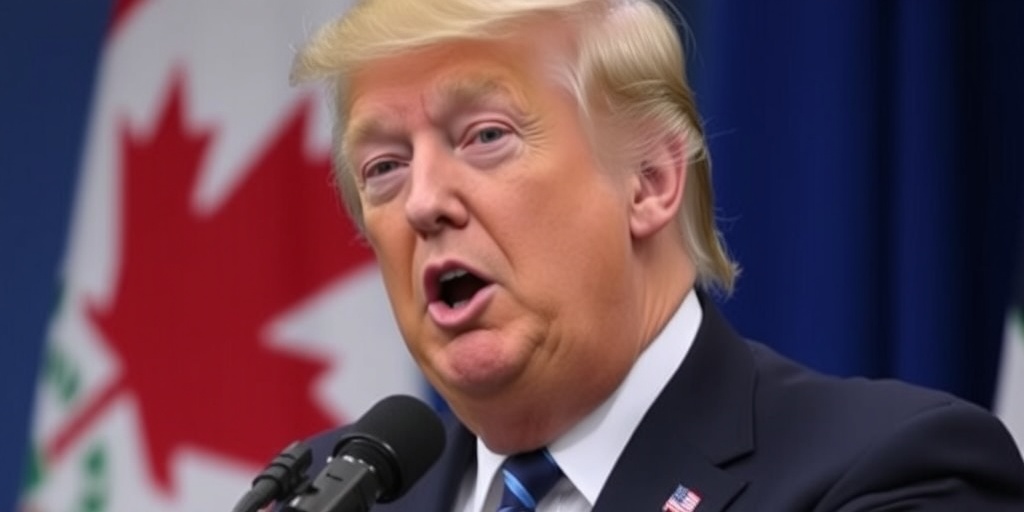Now Reading: Impact of Trump’s Gender Policy Changes on Your Passport
-
01
Impact of Trump’s Gender Policy Changes on Your Passport
Impact of Trump’s Gender Policy Changes on Your Passport

Title: Changes in U.S. Passport Policies Spark Anxiety Among Transgender and Nonbinary Individuals
Last Friday, Hunter Schafer, the renowned trans actress from HBO’s acclaimed series “Euphoria,” shared an eight-and-a-half-minute video on TikTok detailing a significant and deeply personal development: she received a new passport that identifies her with a male marker. This shift comes nearly a decade after she initially changed her gender marker to female on her identity documents. In her video, Schafer expressed her astonishment, stating, “I was shocked. I just didn’t think it was actually going to happen.”
This unexpected experience comes in the wake of the changes brought on by President Trump’s executive order signed on January 20, which mandates that federal agencies recognize individuals solely by the “immutable biological classification as either male or female” assigned at birth. This new directive has instigated feelings of apprehension and confusion among transgender, intersex, and gender-nonconforming Americans who are applying for or renewing passports.
Prior to this order, the U.S. State Department had officially allowed trans individuals to declare their gender on passports without needing medical documentation since June 2021. Additionally, a gender-neutral X marker was made available in April 2022. However, following the new executive order, state departments quickly removed the X option from passport applications, generating widespread uncertainty for those who identified with this marker.
In response to these sweeping changes, the American Civil Liberties Union (ACLU) filed a lawsuit on February 7 against President Trump and the State Department on behalf of seven transgender Americans. The lawsuit aims to challenge the implications of the executive order and its impact on the ability of trans individuals to secure accurate identification documents. As legal proceedings unfold, concerns surrounding passport applications persist.
The executive order’s stipulations affect anyone whose gender identity is inconsistent with their assigned sex at birth. According to the U.C.L.A. Williams Institute, there are approximately 1.6 million transgender individuals residing in the United States. While exact numbers for individuals using gender-neutral X markers remain unclear, records indicate roughly 5,200 individuals in New York State and over 21,000 in California are utilizing such markers on their state IDs. Estimates from a report released by the U.S. Department of Health and Human Services further suggest that there are over five million intersex individuals in the nation.
As a result of the executive order, the government mandates that all identification documents, including passports, reflect an individual’s sex as assigned at birth. Valid documents continue to be acknowledged until their expiration; however, confusion and distress have permeated the application process. The ACLU reported that they had received inquiries from over 1,800 transgender, intersex, and gender-nonconforming individuals facing delays with their passport applications. Additionally, Lambda Legal, another LGBTQ civil rights organization, noted that it had fielded more than 800 passport-related inquiries since the executive order was enforced.
For those who had previously applied for passports using the X marker, the situation is equally precarious. The State Department has indicated that applications requesting an X marker or a designation that differs from one’s sex assigned at birth may experience significant delays. Consequently, many applicants are left in limbo, unsure of how to proceed with their documentation. However, experts like Laurie Lee, co-founder of Swift Passport & Visa Services, predict that those caught in this bureaucratic web will likely have to submit new applications marking either male or female, effectively sidelining the X designation.
The inconsistency surrounding the administration of applications has left some individuals frustrated and anxious. For instance, Westley Ebling, a 26-year-old trans man, had to reach out to his congresswoman, Eleanor Holmes Norton, to get information regarding the status of his passport renewal submitted in January. Norton’s office informed him that applications involving gender changes were suspended indefinitely, with no clear timeline for resolution.
In stark contrast, others, like Schafer, have already received new passports reestablishing their identification to reflect their assigned sex at birth. Lily Powers, a 29-year-old trans woman, found herself facing similar discontent. After submitting an application for a passport with an F marker following gender-affirming surgery, she was dismayed to find her new passport displayed an M marker without explanation.
Traveling with incorrect gender markers on passports poses significant risks. Many individuals report facing harassment, additional screening, and heightened scrutiny from security personnel when their appearance does not align with the gender listed on their documents. Arli Christian, senior policy counsel at the ACLU, addressed these concerns, emphasizing the genuine fear felt by trans, intersex, and nonbinary travelers regarding potentially being questioned, detained, or even having their documentation confiscated simply because of their identity.
In her video, Schafer articulated her apprehensions about traveling abroad with her new passport. She acknowledged the likelihood of needing to disclose her gender identity to border agents more often than she would prefer or deem necessary. This highlights the broader implications of the executive order on the rights and dignities of transgender and nonbinary individuals.
As the debate surrounding identification for transgender individuals continues to unfold, the impacts of these policies remain deeply felt in the community. As tension grows, the need for a more inclusive understanding of identity within government policies remains paramount. The ongoing legal battles may shape the future landscape for transgender rights, and as individuals navigate these complexities, many are left yearning for clarity and affirmation.
Stay Informed With the Latest & Most Important News
Previous Post
Next Post
-
 01New technology breakthrough has everyone talking right now
01New technology breakthrough has everyone talking right now -
 02Unbelievable life hack everyone needs to try today
02Unbelievable life hack everyone needs to try today -
 03Fascinating discovery found buried deep beneath the ocean
03Fascinating discovery found buried deep beneath the ocean -
 04Man invents genius device that solves everyday problems
04Man invents genius device that solves everyday problems -
 05Shocking discovery that changes what we know forever
05Shocking discovery that changes what we know forever -
 06Internet goes wild over celebrity’s unexpected fashion choice
06Internet goes wild over celebrity’s unexpected fashion choice -
 07Rare animal sighting stuns scientists and wildlife lovers
07Rare animal sighting stuns scientists and wildlife lovers





















